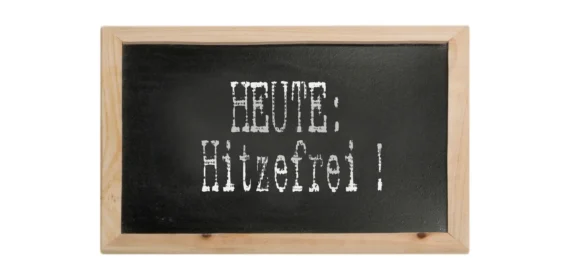Before a works council is established at a company, an election committee first has to be appointed. The committee is elected by the employees at a works meeting, provided that there is neither a General Works Council nor a Group Works Council. If the works meeting does not take place despite an invitation, or the meeting fails to elect an election committee, the committee can be appointed by the Labor Court.
The corona pandemic made it extremely difficult to hold works meetings and even made meetings impossible, in some cases. Accordingly, the appointment of the election committee by the responsible Labor Court without issuing a prior invitation to a works meeting was considered at times as an alternative option. However, this approach involves significant hurdles. This was clearly reflected by a decision by the Darmstadt Labor Court dated 6/15/2021, which rejected an application for a court-appointed election committee (Ref.: 4 BV 7/21).
No works meeting due to corona
The employees of a company submitted an application to the Darmstadt Labor Court for the court appointment of an election committee.
The employees work at a company which fulfills the requirements for a works council but has not yet established such employee representation. The three applicants intended to change this and declared their willingness to serve as the election committee. According to Section 17 (2) of the Works Constitution Act (BetrVG), an election committee should have been elected by the majority of the employees present at a works meeting. However, the applicants failed to issue an invitation to such a works meeting and instead directly requested the appointment of the election committee by the Labor Court pursuant to Section 17 (4) of the Works Constitution Act (BetrVG).
To justify their application, they argued that a works meeting could not be held on the premises or elsewhere due to the corona pandemic and the need to comply with the protective measures.
Decision of the Lingen Labor Court
In a comparable case, the Lingen Labor Court had already made a similar appointment with its decision dated 3/19/2021 ((Ref.: 1 BV 1/21).
The court decided that the invitation to the works meeting was superfluous due to the unique situation and the need for infection protection created by the corona pandemic. In this case, the court appointed the election committee.
The court determined that the invitation to the works meeting was fundamentally essential and the legal nature of the appointment “despite invitation” served to protect the interests of the staff as a whole. However, the court also stated that this represented a special case. The court explained that due to the high infection numbers and the need for infection protection, it would have been neither reasonable nor responsible to hold a works meeting.
Darmstadt Labor Court rejects the application to appoint an election committee
However, the Darmstadt Labor Court rejected the application with its current decision.
The Darmstadt Labor Court initially stated in its justification that an invitation to a works meeting had not been issued and was also fundamentally not superfluous. It referred to a decision from the German Federal Labor Court dated February 26, 1992 (Ref.: 7 ABR 37/91).
In contrast to the Lingen Labor Court, the Darmstadt Labor Court did not regard the current pandemic situation as a special case in which the requirement for a prior invitation could be waived.
In the process, the Darmstadt Labor Court stated its agreement with the viewpoint of the Lingen Labor Court that it would not have been reasonable or responsible to hold a works meeting with 190 people in a single room in March 2021.
However, the Darmstadt Labor Court also correctly argued that the current situation is no longer comparable with the situation as decided by the Lingen Labor Court. In March 2021, significant contact restrictions had been in force for a number of months and the incidence rate far exceeded 100 in many administrative districts throughout Germany. In contrast, at the time of the decision, the incidence rate in Darmstadt was less than 13, less than 50 in most administrative districts throughout Europe and approximately 16 for Germany as a whole. In view of these current infection figures, meetings could no longer be regarded as irresponsible. For this reason, events with up to 100 unimmunized people enclosed rooms were permissible subject to current tests and a suitable hygiene concept.
Furthermore, the applicants had the opportunity to ask in advance whether the employees were willing to declare whether they were fully immunized or had recovered from the virus. If this were to apply to a large number of employees, events with far more than 100 employees could also take place.
Admittedly, the situation could change at any time. Nevertheless, the court assumed that, for the summer months at least, a works meeting would be able to take place given the warm weather, the progressive immunization of the populace and the travel restrictions from high-risk areas and regions with virus mutations.
The court appointment of an election committee is only a stopgap measure. Before this, employees must at least be given the opportunity to elect an election committee.
Even the corona pandemic no longer prevents this from happening.









